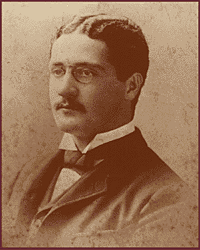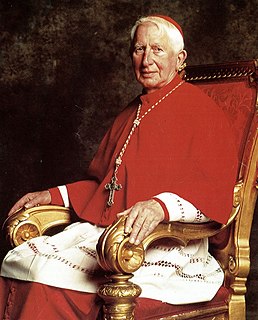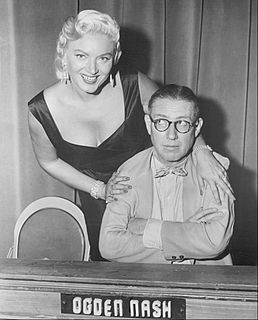A Quote by James Loeb
The mechanical and social achievements of our day must not blind our eyes to the fact that, in all that relates to man, his nature and aspirations, we have added little or nothing to what has been so finely said by the great men of old.
Related Quotes
Theologians talk about a prevenient grace that precedes grace itself and allows us to accept it. I think there must also be a prevenient courage that allows us to be brave - that is, to acknowledge that there is more beauty than our eyes can bear, that precious things have been put into our hands and to do nothing to honor them is to do great harm. And therefore, this courage allows us, as the old men said, to make ourselves useful. It allows us to be generous, which is another way of saying exactly the same thing.
The Little Boy and the Old Man Said the little boy, "Sometimes I drop my spoon." Said the old man, "I do that too." The little boy whispered, "I wet my pants." I do that too," laughed the little old man. Said the little boy, "I often cry." The old man nodded, "So do I." But worst of all," said the boy, "it seems Grown-ups don't pay attention to me." And he felt the warmth of a wrinkled old hand. I know what you mean," said the little old man.
You must have seen great changes since you were a young man," said Winston tentatively. The old man's pale blue eyes moved from the darts board to the bar, and from the bar to the door of the Gents ... "The beer was better," he said finally. "And cheaper! When I was a young man, mild beer - wallop we used to call it - was fourpence a pint. That was before the war, of course." "Which war was that?" said Winston. "It's all wars," said the old man vaguely. He took up his glass, and his shoulders straightened again. "'Ere's wishing you the very best of 'ealth!
One must be oneself very little of a philosopher not to feel that the finest privilege of our reason consists in not believing in anything by the impulsion of a blind and mechanical instinct, and that it is to dishonour reason to put it in bonds as the Chaldeans did. Man is born to think for himself.
The great secret of morals is love; or a going out of our nature, and an identification of ourselves with the beautiful which exists in thought, action, or person, not our own. A man, to be greatly good, must imagine intensely and comprehensively; he must put himself in the place of another and of many others; the pains and pleasure of his species must become his own. The great instrument of moral good is the imagination.
The science of psychology has been far more successful on the negative than on the positive side... It has revealed to us much about man's shortcomings, his illnesses, his sins, but little about his potentialities, his virtues, his achievable aspirations or his psychological health... We must find out what psychology might be if it could free itself from the stultifying effects of limited, pessimistic and stingy preoccupations with human nature.
Broader and deeper we must write our annals, from an ethical reformation, from an influx of the ever new, ever sanative conscience, if we would trulier express our central and wide-related nature, instead of this old chronology of selfishness and pride to which we have too long lent our eyes. Already that day exists for us, shines in on us at unawares, but the path of science and of letters is not the way into nature. The idiot, the Indian, the child, and unschooled farmer's boy, stand nearer to the light by which nature is to be read, than the dissector or the antiquary.
A man who can do everything fully consciously becomes a luminous phenomenon. He is all light, and his whole life is full of fragrance and flowers. The mechanical man lives in dark holes, dirty holes. He does not know the world of light; he is like a blind man. The man of watchfulness is really the man who has eyes.
You know, my boy, he said, it's impossible to love men such as they are. And yet we must. So try to do good to men by doing violence to your feelings, holding your nose, and shutting your eyes, especially shutting your eyes. Endure their villainy without anger, as much as possible; try to remember that you're a man too. For, if you're even a little above average intelligence, you'll have the propensity to judge people severely. Men are vile by nature and they'd rather love out of fear. Don't give in to such love: despise it always.
Summertime, I think, is a collective unconscious. We all remember the notes that made up the song of the ice cream man; we all know what it feels like to brand our thighs on a playground slide that's heated up like a knife in a fire; we all have lain on our backs with our eyes closed and our hearts beating across the surface of our lids, hoping that this day will stretch just a little longer than the last one, when in fact it's all going in the other direction.

































